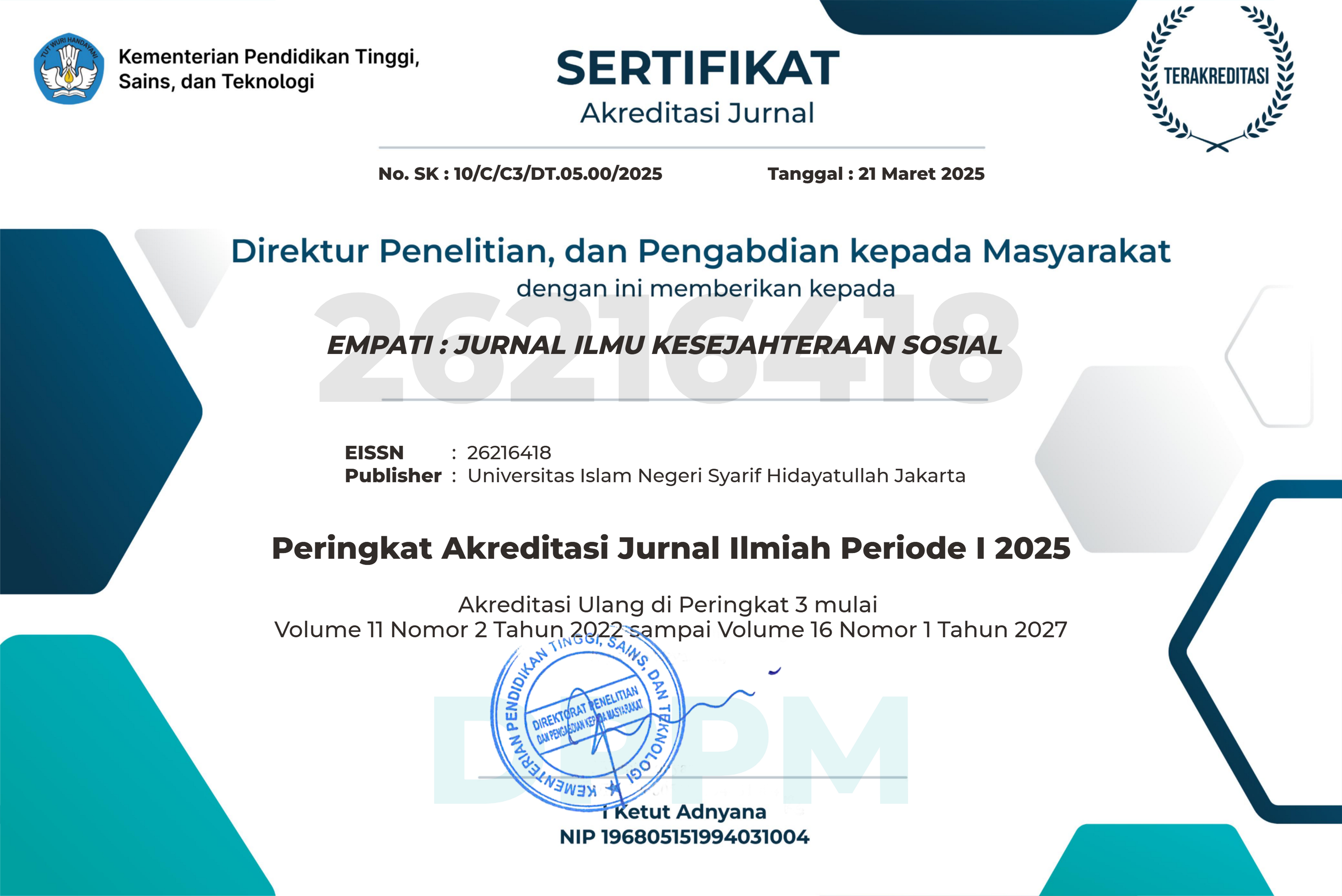Peer Review Process
Peer Review Process
Every manuscript submitted to Empati: Jurnal Ilmu Kesejahteraan Sosial undergoes an initial evaluation by the editorial board. Manuscripts that do not meet the journal’s focus and scope, or fail to satisfy academic standards, will be rejected at this early stage.
Manuscripts deemed suitable for publication are then assigned to at least two independent peer reviewers using a double-blind review system, where both authors and reviewers remain anonymous to each other. Final publication decisions are made by the Editors based on the reviewers’ recommendations.
Reviewer Selection
The selection of reviewers is a crucial process aimed at ensuring high-quality article evaluation. Reviewers are chosen based on:
- Expertise in the relevant subject area
- Experience in publication and peer review
- Recommendations or scholarly track record within the social welfare field
Before assigning a manuscript, editors ensure that the reviewers are competent, free from conflicts of interest, and able to complete the review within a reasonable timeframe.
Review Guidelines
The primary role of reviewers is to provide objective and constructive feedback to help editors determine a manuscript’s eligibility for publication. Reviewers are expected to:
- Assess the academic contribution, methodology, and originality of the manuscript
- Provide clear suggestions for improvement
- Identify inconsistencies, ethical issues, or incomplete citation practices
If a manuscript falls short of the journal’s standards, reviewers should clearly explain the reasons for rejection and provide guidance that may help authors enhance their work in the future.
Anonymity Policy
Empati implements a double-blind review process. The identities of both authors and reviewers are kept confidential throughout the evaluation and after publication. Reviewers should not reveal their identity unless formally agreed upon by the editors.
Editorial and Ethical Oversight
In special cases, the editors may seek additional consultation regarding:
- Ethical considerations in research
- Data transparency and accessibility
- Potential social risks associated with publication
Articles involving sensitive social topics may undergo heightened scrutiny to ensure responsible and ethical dissemination of knowledge.
The final decision to accept or reject a manuscript rests entirely with the editors of Empati, in accordance with academic integrity, reviewer input, and journal policies.
















